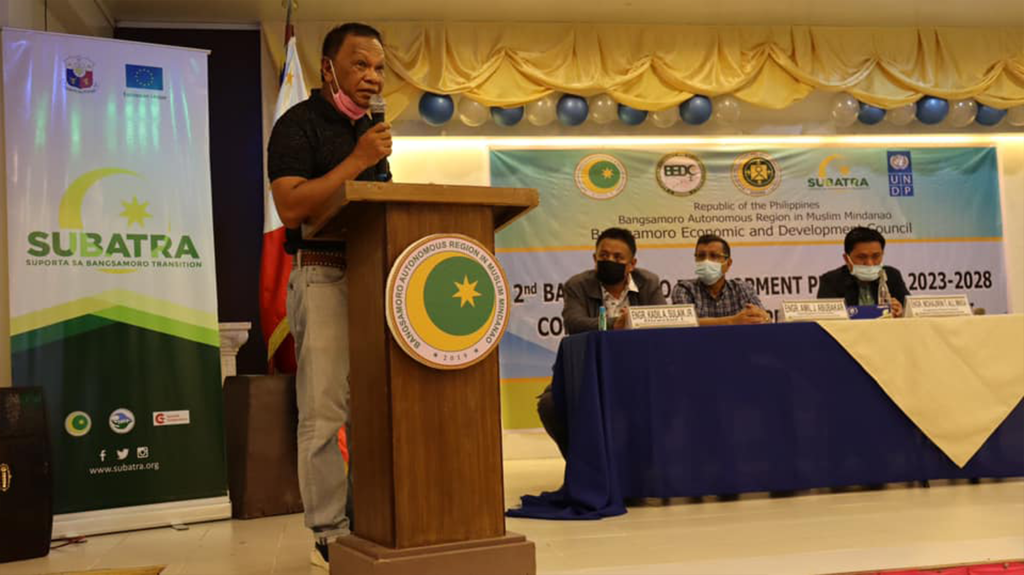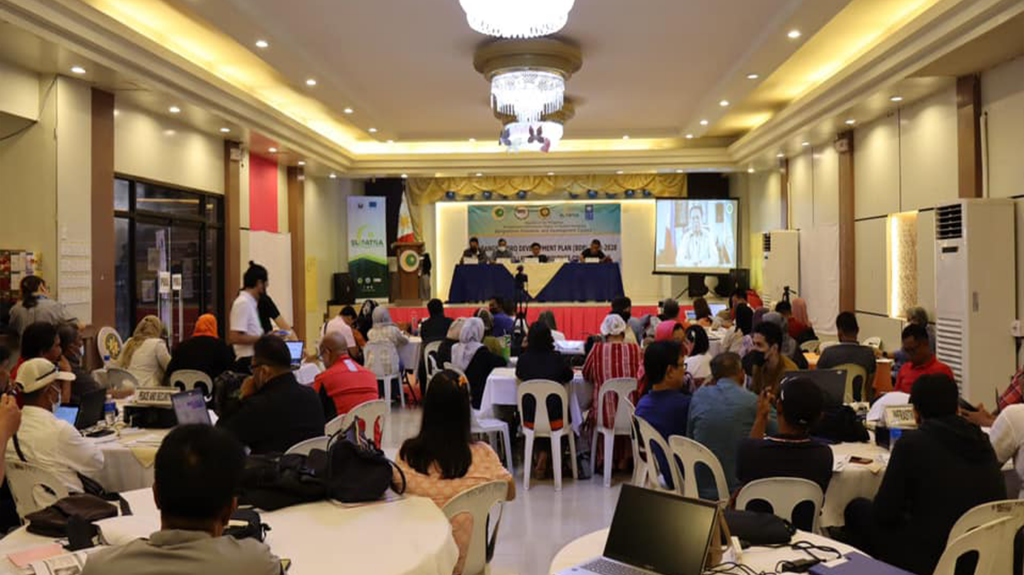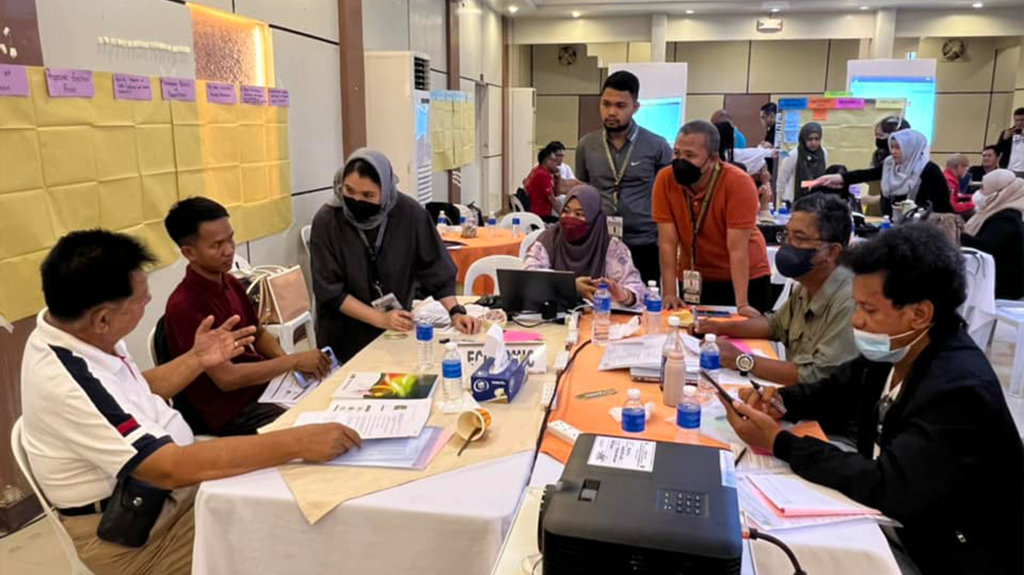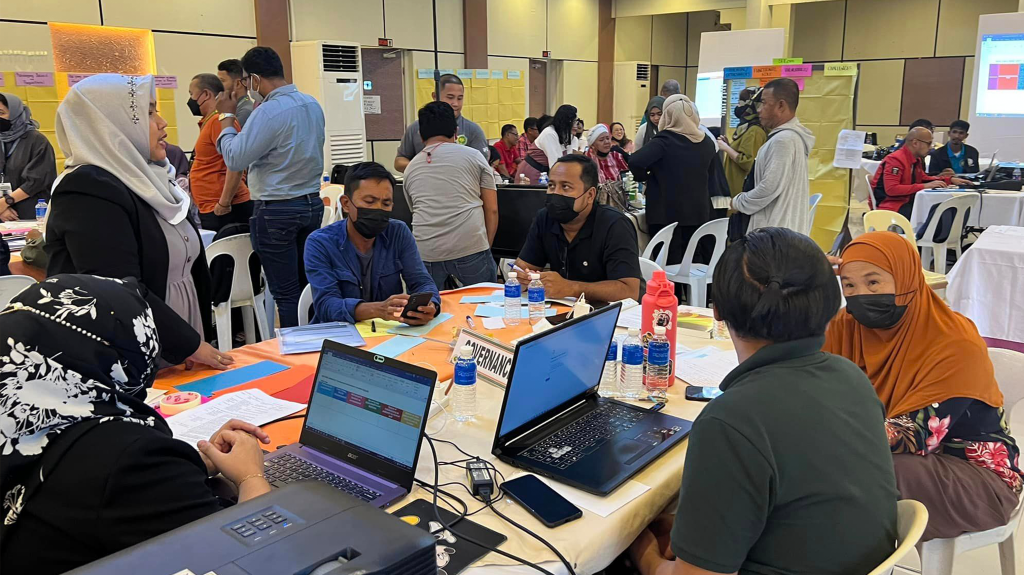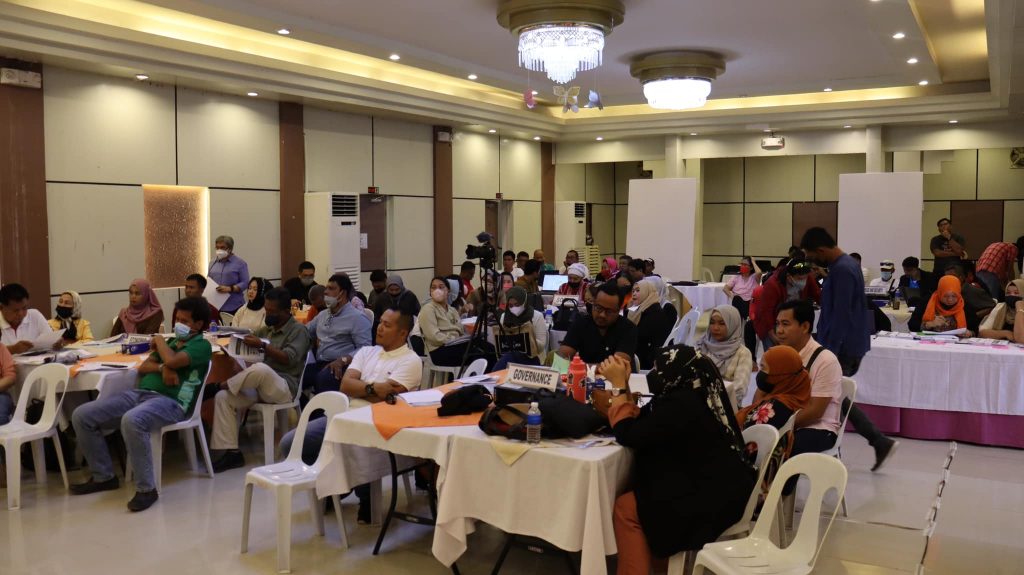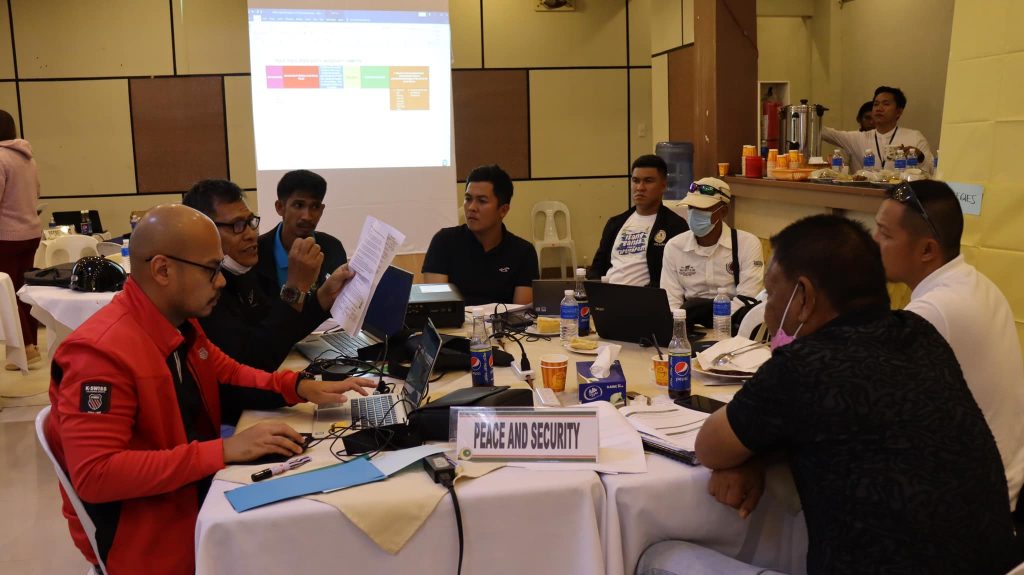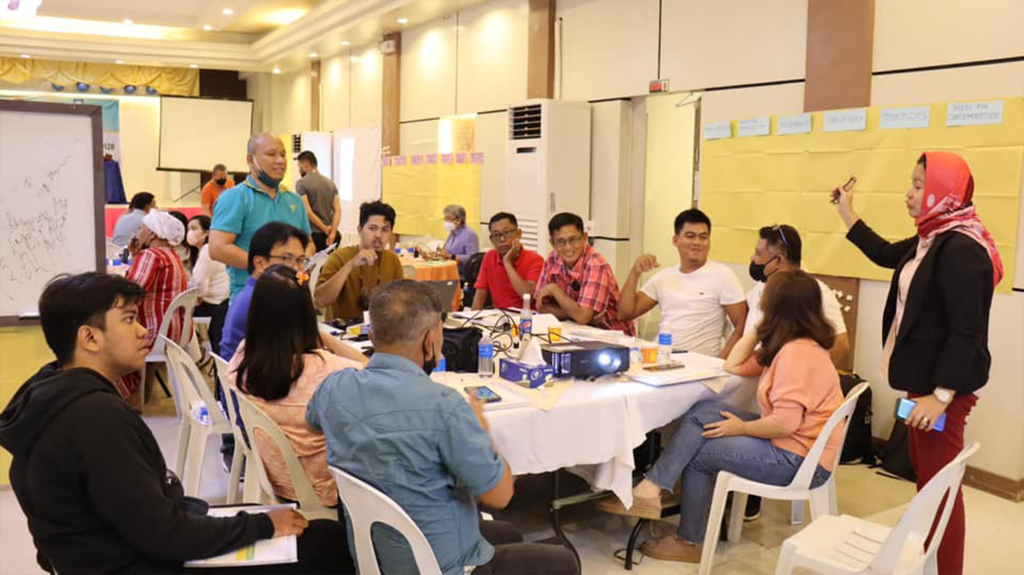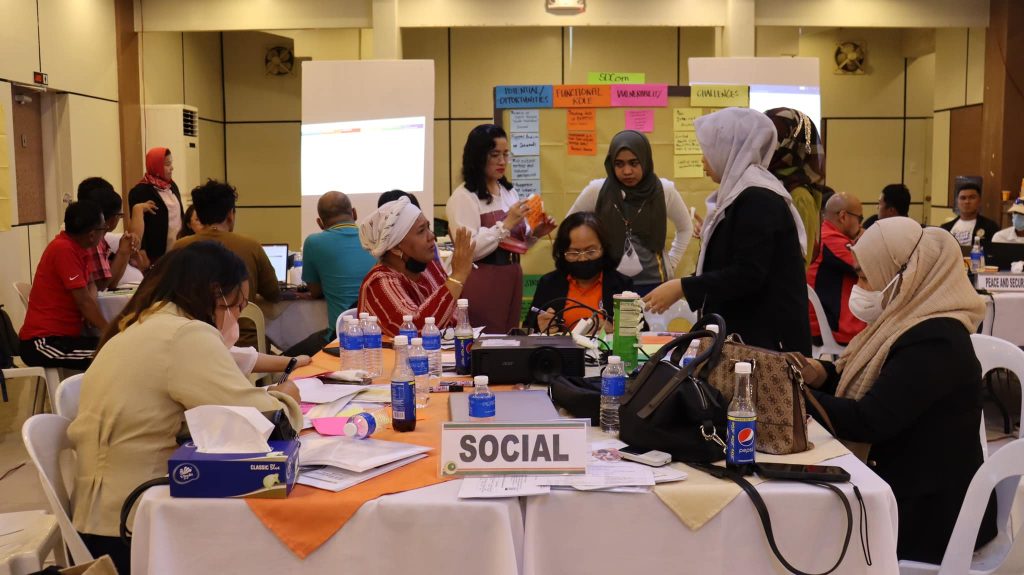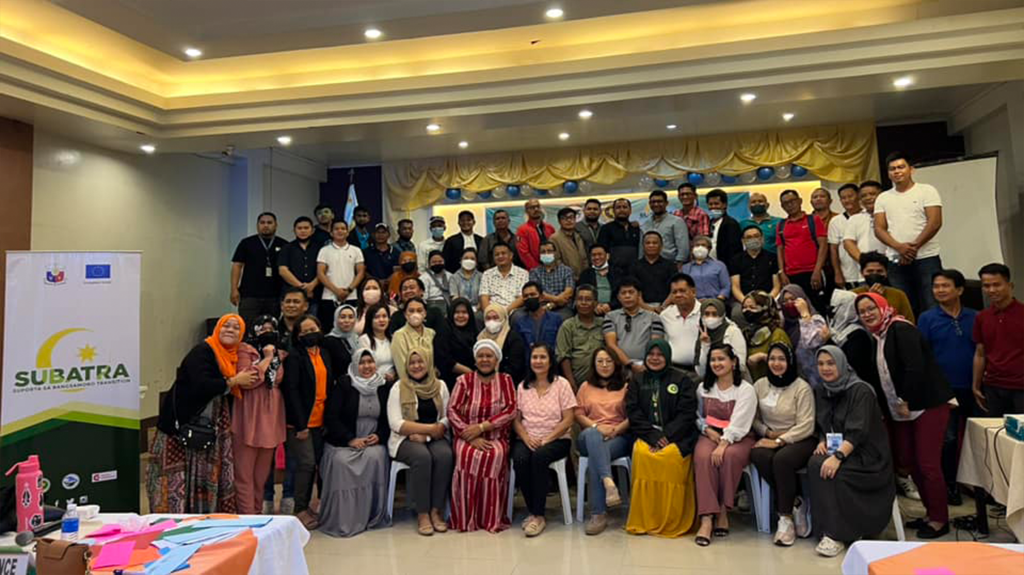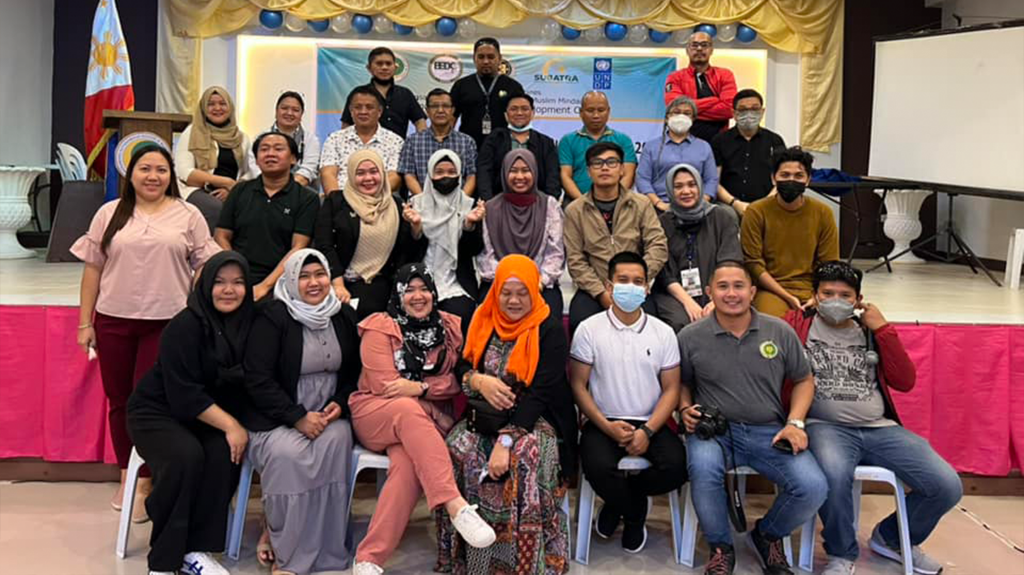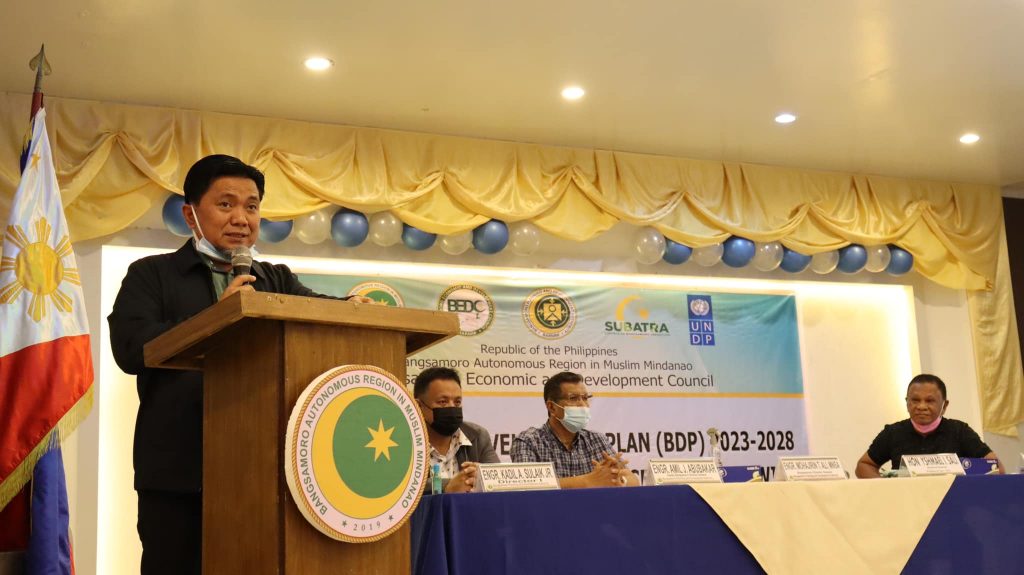
BONGAO, TAWI-TAWI — Aimed at gathering information and soliciting inputs and recommendations for the ongoing formulation of the 2nd Bangsamoro Development Plan (BDP) for 2023-2028, the five sectoral committees of the Bangsamoro Economic and Development Council (BEDC) through Bangsamoro Planning and Development Authority (BPDA) led by Director General Engr. Mohajirin T. Ali, jumpstarted the consultation in the island provinces of the Bangsamoro Autonomous Region in Muslim Mindanao (BARMM) with the provincial local government unit (LGU) of Tawi-Tawi and its constituent municipal LGUs, held Tuesday, Oct. 11, 2022 at Rachel’s Place Hotel and Restaurant in Brgy. Lamion, Bongao, Tawi-Tawi.
Engr. Wahab U. Bakil, Tawi-Tawi Provincial Planning and Development Coordinator (PPDC), led the participating LGU representatives from the eleven municipalities. In his message, he said that Tawi-Tawi is essential to the Bangsamoro region, underscoring its potential to become the region’s gateway to Brunei Darussalam-Indonesia-Malaysia-Philippines East ASEAN Growth Area (BIMP-EAGA).
“We will bring Tawi-Tawi as the gateway of BARMM, if not the whole of Mindanao, to the whole BIMP-EAGA,” he stressed.
During consultation-workshop, each sector presented their outputs that features Tawi-Tawi’s potentials and opportunities that can be harnessed to support the growth of the BARMM; identified specific hazards or risks in the locality, both natural and human-induced; identified significant sectoral challenges confronting the said province; and LGUs’ recommended development priorities, thrusts, and strategies to be considered in the 2nd BDP.
Some of the identified opportunities and potentials that will further BARMM’s economic growth are the following: Tawi-Tawi’s strategic location to be developed as an economic zone and a gateway to BIMP-EAGA; Tawi-Tawi as a cross-border trading hub of the region; eco-tourism industry; rich aquatic resources; and seaweeds and fish processing industry as Tawi-Tawi is known to be the largest seaweed producer in the country.
On the other hand, various challenges were identified in the sectors of development administration, economic, social, peace and security, and infrastructure such as limited access to potable water supply, limited power supply, poor internet connectivity, lack of inter-islands or inter-municipality transportation system, inadequate infrastructure facilities, rise in seawater level and temperature, food security, poor waste disposal, presence of human trafficking, inadequate school and sports facilities, and insufficient medical and diagnostic laboratory centers.
DG Ali shared that according to the result of the recently conducted study, particularly on water quality and services provided by Tawi-Tawi Water District, only 11% of the province’s total area is serviceable.
In terms of scarcity in supplying power and electricity for the said province, he further said that the Bangsamoro Government sees “solar power” distribution and utilizing biomass renewable energy as means to alleviate its cost and supply.
Meanwhile, this consultation-workshop was facilitated by Maria Victoria Z. Maglana and Eric John Matela with support from BARMM’s development partners, the Support to Bangsamoro Transition (SUBATRA) and United Nations Development Programme (UNDP). (Mary Lovella Lao-Lastimosa, BPDA-BARMM)
